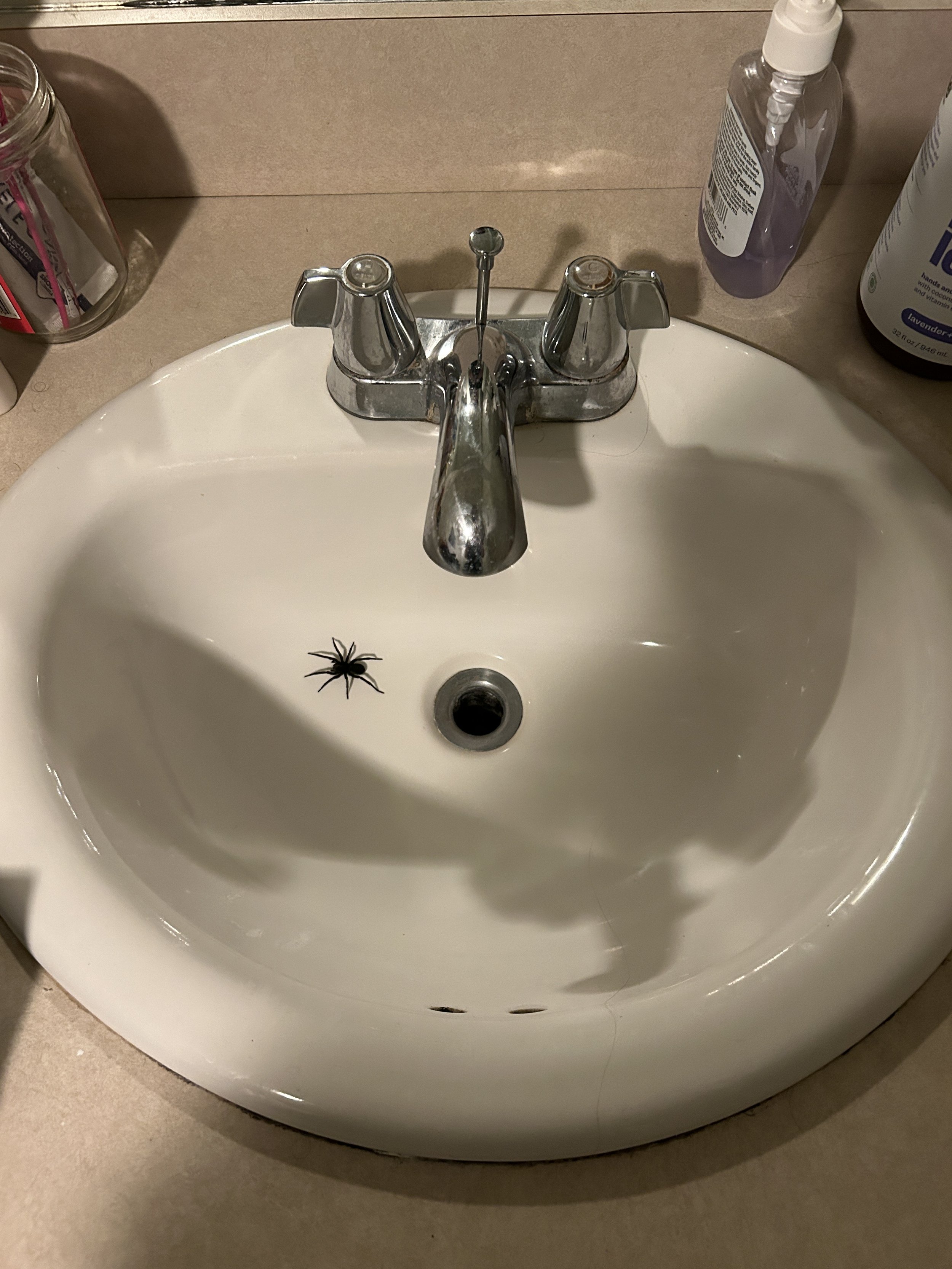Fig. 1: View from my window
My assumption, when I joined the LRCC, was that I would have five housemates. A second, more implicit assumption was that all of these housemates would be human. You can probably guess which of these turned out to be correct. One of my colleagues turned out to live nearby enough that she need not move into company housing, and while the rest of us felt her absence, we soon also felt a presence: a scratching in the walls, the appearance of piles of neatly arranged dryer lint, once, a small dark shape in the corner of the basement. I am fairly certain that our unexpected cohabitant is a mouse, although having never really gotten a good look at it, it’s hard to discount the possibility of a poltergeist or other such restless spirit.
Having grown up in the city, this is not my first time sharing a roof with rodents. My childhood home in Cambridge, MA, had more than just one mouse (visually confirmed, as the mice of my youth were much bolder than our present uninvited guest). We also had rats, which are illegal in Cambridge, but which don’t particularly believe in the rule of law. Like in many homes, any rodent found inside my house was summarily dispatched. There are good reasons to keep mice out of one’s living space: they can carry disease, eat your food, and damage the structure. However, I suspect the main reason that one is so confident in killing city mice is simply that they don’t seem to belong. The ground is made of asphalt and concrete; the trees and green spaces are far apart; the place teems with voracious non-native predators (housecats). The whole environment is manmade; the city is a native habitat for us and nothing else. In executing mice, the city-dweller appears to have the castle doctrine on their side.
For some reason, having a few more trees outside my window changes my perspective. Here in the woods, it feels a lot more like I’m intruding on the mouse’s territory than it is on mine. Maybe I feel less of a claim just because I moved here recently, but mice have been everywhere in North America longer than people have, and a lot longer than my people have. While in the city mice seemed a nuisance to be dealt with by the most efficient means possible, here it is suddenly obvious that if the mice had the ability to crush, drown, electrocute, or poison me, they would not hesitate to do so. By any reasonable standard of self-defense, they’d be well within their rights. Sure, my presence here is (probably) doing some good for the mice, but if the mice could extirpate humans from the shores of this lake, they wouldn’t need me to save them. I’m not advocating for the toleration of mice, nor for the depopulation of Squam Lake—it’s hard to defend a stance against one’s own species. But both city and country folk alike would do well to realize that wildlife doesn’t choose to share its habitat, so the least we can do is try to be good neighbors, even if that sometimes means putting up a good fence.
Fig 2: Native wildlife
Peter is full-term member at the Squam Lakes Association, serving as an Education and Outreach Assistant. In his free time you might find him relaxing with a puzzle. Learn more about Peter here!



